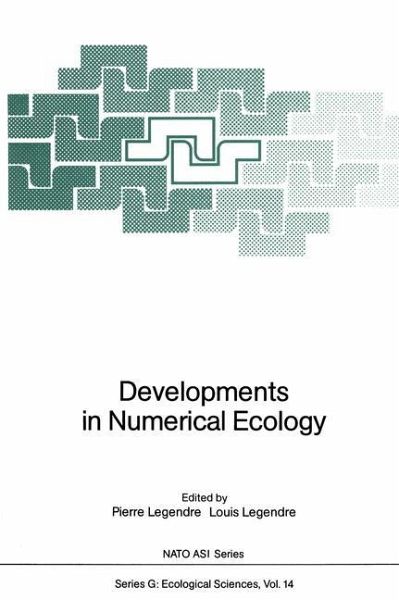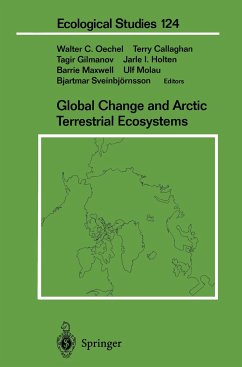
Developments in Numerical Ecology
Versandkostenfrei!
Versandfertig in 1-2 Wochen
153,99 €
inkl. MwSt.

PAYBACK Punkte
77 °P sammeln!
From earlier ecological studies it has become apparent that simple univariate or bivariate statistics are often inappropriate, and that multivariate statistical analyses must be applied. Despite several difficulties arising from the application of multivariate methods, community ecology has acquired a mathematical framework, with three consequences: it can develop as an exact science; it can be applied operationally as a computer-assisted science to the solution of environmental problems; and it can exchange information with other disciplines using the language of mathematics. This book compri...
From earlier ecological studies it has become apparent that simple univariate or bivariate statistics are often inappropriate, and that multivariate statistical analyses must be applied. Despite several difficulties arising from the application of multivariate methods, community ecology has acquired a mathematical framework, with three consequences: it can develop as an exact science; it can be applied operationally as a computer-assisted science to the solution of environmental problems; and it can exchange information with other disciplines using the language of mathematics. This book comprises the invited lectures, as well as working group reports, on the NATO workshop held in Roscoff (France) to improve the applicability of this new method numerical ecology to specific ecological problems.














